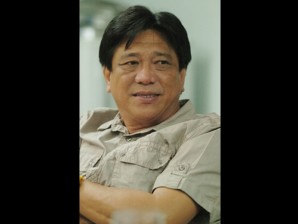DA secretary opposes cash distribution to farmers forced to pay coconut levy
LUCENA CITY, Philippines—Agriculture Secretary Proceso Alcala slammed the proposed distribution of the nearly P70-billion coconut levy fund to individual farmers, saying it would only generate floods of court cases against the government.
Alcala feared the heirs of deceased coconut farmers and the government would end up embroiled in divisive and costly cases in court to determine who among them would be the legal recipients of the share of the levy contributors.
“Most of the levy contributors were already dead. If the government would resort to cash distribution, many of the heirs would file complaints on charges of unequal distributions,” Alcala told reporters in Mulanay, Quezon, on Wednesday on the sideline of the Department of Agrarian Reform land distribution program.
When Alcala was reminded that the Coconut Farmers Federation maintained records of the levy contributors, he shrugged his shoulder and replied: “I don’t know.”
Alcala, a former Quezon congressman, has been opposing the individual distribution of the levy money and instead suggested that the assets be used to rehabilitate and modernize the industry so that the benefits would trickle down to the poorest coconut farmer.
Under Alcala’s proposal, the coco levy fund will be placed in a perpetual trust fund and parts of its earning to be used in the long-neglected research and development of the coconut industry.
The Presidential Task Force on the Coco Levy Funds has also been pushing the allocation of P11.17 billion from the coco levy fund for its “Poverty Reduction Program for the Coconut Industry” project.
But peasant groups are divided on what to do with the recovered coconut levy fund.
“That’s our money, we ought to have the right to decide how to spend it,” said Nestor Villanueva, regional coordinator of the claimants group Coco Levy Funds Ibalik sa Amin (CLAIM)-Southern Tagalog.
CLAIM is an alliance of farmers’ organizations, federations, coconut planters associations and individual claimants and beneficiaries of coco levy funds.
Another group of coconut farmers welcomed Alcala’s proposal.
“The coco levy should remain intact as a perpetual trust fund for the coconut industry until a law is passed and policies are set on how best (it could be used to) benefit the coconut farmers,” said Jansept Geronimo, spokesperson of Kilusan Para sa Tunay na Repormang Agraryo at Katarungan Panlipunan (Katarungan).
Coconut farmers from Quezon are believed to be the biggest contributors to the coco levy fund, a tax exacted from them between 1973 and 1982 during the regime of the dictator Ferdinand Marcos.
Gov. David Suarez said his consultations with Quezon farmers not affiliated with peasant groups revealed that most preferred cash distribution.
“The coconut levy fund was forcibly exacted by the state from the farmers during martial law regime. To serve the best interest of justice, it is but fair and proper to return the money to them to correct the gross injustice committed in the past,” Suarez argued.
Suarez maintained the national government, particularly the Department of Agriculture, has sufficient funds to embark on the massive rehabilitation of the industry, which turned out production that became the top export items of the country.
“The government has no more justifiable reasons to withhold the money. Millions of farmers who paid the levy are now old, sick and dying. Most of them have died poor. They deserve the proceeds from the levy fund to alleviate their plight,” he added.
He said that those who must be compensated could easily be identified because the government has been able to maintain records of the farmers who paid the levy.
